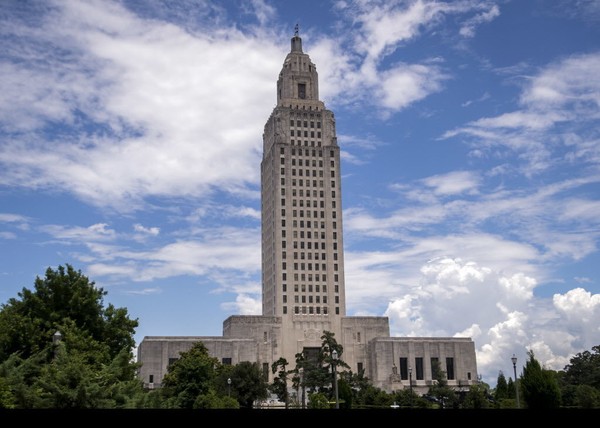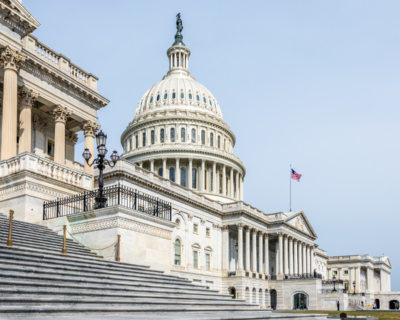
Missed Opportunities During Legislative Session Increases Importance of Fall 2019 Elections
With the 2019 regular legislative session coming to a close this week, the Pelican Institute wants to take some time to reflect on the victories achieved and opportunities missed by lawmakers. This was an abbreviated legislative session and that, combined with rapidly approaching fall elections, made chances for the possibility of enacting transformational policy reforms slim. But, this didn’t stop some legislators from offering bold reforms and taking important first steps to addressing structural problems in the state. Meanwhile, other legislators took this session as an opportunity to ignore the real issues and rearrange the deckchairs on the proverbial sinking ship that is our state.
Perhaps the most needed reform in Louisiana is to its burdensome and overcomplicated tax code. Fortunately, this session saw multiple attempts to lower sky-high tax rates and simplify the system’s structure. Representatives such as Mark Wright (R-Covington) and Jerome “Zee” Zeringue (R-Houma) took bold steps toward the reforms needed, but predictably, the status quo reared its ugly head and blocked the measures from reaching the governor’s desk.
Other legislation meeting similar resistance were aimed to reform Louisiana’s byzantine budgeting process to avoid lurching from one fiscal cliff to the next and secure a brighter financial future for the state. Representative Rick Edmonds’ (R-Baton Rouge) bill, which would have limited the legislature to only appropriating 98 percent of projected funds, was swiftly referred to the Senate Committee of Revenue and Fiscal affairs where it was subsequently buried, never to see the light of day.
Meanwhile, legislation by Tony Bacala (R-Prairieville) that would have provided more tools to audit the state’s Medicaid program similarly met its demise in a Senate Committee. Are we seeing a pattern here?
Equally disappointing this session was the lack of much-needed legal reform measures. For years, the state has ranked as the worst “judicial hellhole” in the nation. This moniker underscores the loss of jobs and opportunity, as well as the thousands of dollars in extra costs to citizens, resulting from the state’s abusive lawsuit climate. The inability to pass legal reform legislation wasn’t for lack of trying, as a variety of bills were introduced to tackle this issue. Unfortunately, all the bills met similar fates as others challenging the entrenched status quo and were unsuccessful in gaining significant movement.
There is good news amid the disappointment, however, as more focused measures to help Louisiana citizens were successful and are currently awaiting the Governor’s signature, veto or no action.
SB 198 by Senator Barrow Peacock (R-Bossier City) requires the state provide refunds for the thousands of Louisianans who overpaid their taxes due to an unconstitutional law. This crucial reform passed out of the legislature and is on the Governor’s desk awaiting his decision.
So, what exactly did leaders in Baton Rouge spend most of their limited time on this session? Upon examination of a series of truly head scratching bills, it appears most efforts went toward propping up and protecting entrenched special interests.
Some of the legislation slated to become law includes banning terms like “almond milk” and “cauliflower rice,” as some lawmakers argue the labels are confusing to taxpayers. Other questionable food-based bills include forcing restaurants to inform their patrons if the crawfish or shrimp they are enjoying are “foreign.”
These types of policies are not only destructive, because they are designed to protect special interests, but they also represent a legislature that is more concerned about petty, insignificant issues rather than correcting the state’s truly massive problems. What’s worse is that some of these bills are likely to get the state sued, costing even more resources that could be better spent elsewhere.
Thankfully, some in the legislature were interested in removing some of the rules and regulations holding the state back rather than just passing new ones.
Once again, progress was made in the legislature toward reforming the Louisiana’s burdensome occupational licensing laws. Julie Emerson (R- Carencro), a champion for these licensing reforms, introduced legislation that prevents occupational licenses from being seized due to falling behind on student loans. This previous law served as a catch-22, as it prevented those who had lost their licenses from being able to earn income to pay off those very same loans.
Meanwhile, Tanner Magee (R-Houma) finally got a statewide rideshare framework over the Senate speedbump and onto the governor’s desk. Not only does this mean that those living in and visiting the great state of Louisiana can get an affordable and convenient ride, but now, extra income opportunities are available for thousands of Louisiana residents.
While all of these represent important steps toward getting Louisiana’s economy back on track, we still have a long way to go.
Despite slightly lowering unemployment rates in recent years, Louisiana’s economy is still struggling and lags behind the rest of the nation. In fact, the dip in the unemployment rate is actually due to people dropping out of the labor force altogether, not from Louisianans finding jobs here. Throw in a declining real Gross Domestic Product and you have a state that is one of the worst in the nation in terms of its economic outlook.
With the upcoming election this fall, there will be a gaggle of new lawmakers coming to Baton Rouge in 2020, and they will be tasked with deciding the policy future of the state. The question is, will they build on the small policy victories of this session? Or will they work to protect the status quo, which has left Louisiana in such poor economic shape?
We encourage all Louisiana citizens to ask questions of their candidates as they pass through your community. Important questions, such as: Where do you stand on tax reform? What are you going to do to improve Louisiana’s legal and regulatory systems? How can you prevent Louisiana from experiencing budget crisis after budget crisis? What are your plans to ensure that every child has the opportunity to attend a school that fits for him/her?
It’s up to us as taxpayers and voters to ask the tough questions and ensure our elected officials truly represent our best interests. We don’t need more defenders of the business-as-usual approach to policy in Louisiana. We need trailblazers.
To learn more about the Pelican Institute’s Jobs and Opportunity Agenda for Louisiana and how you can be a part of the solutions, click here.



